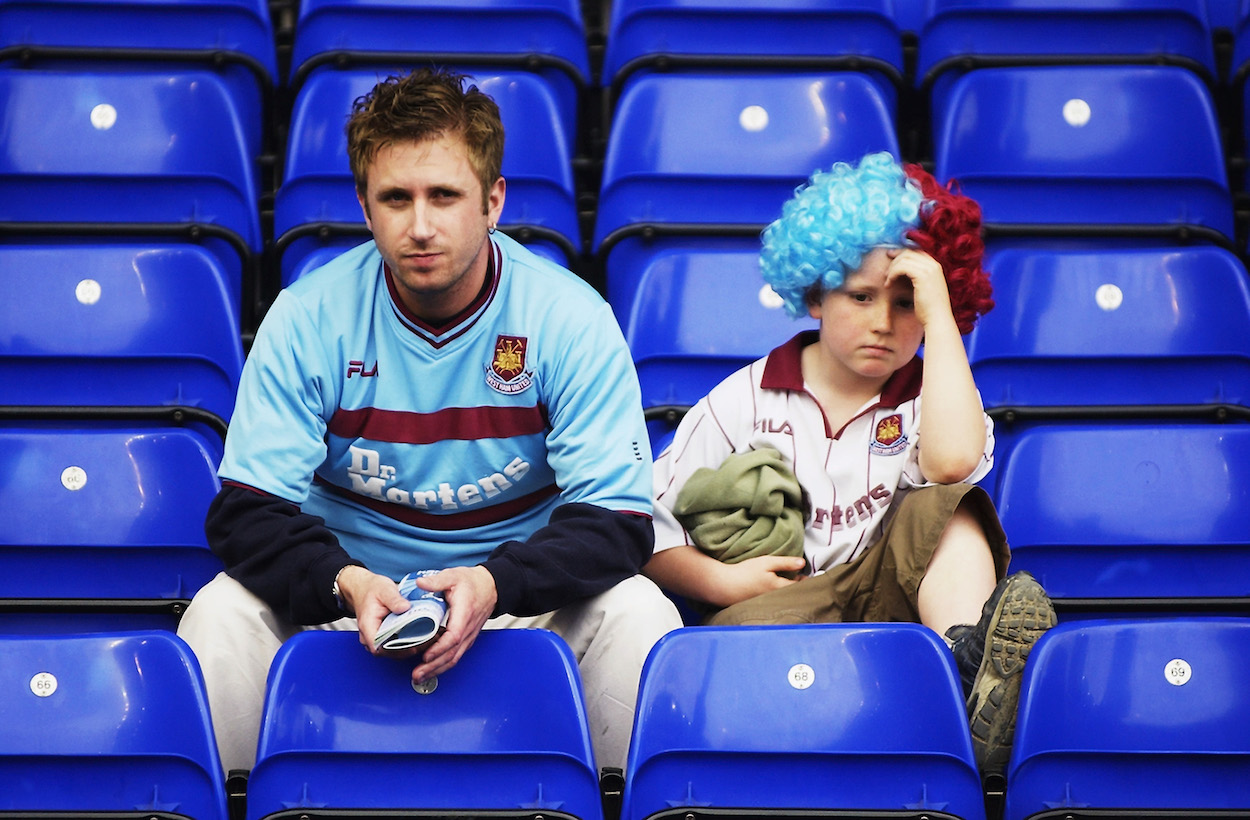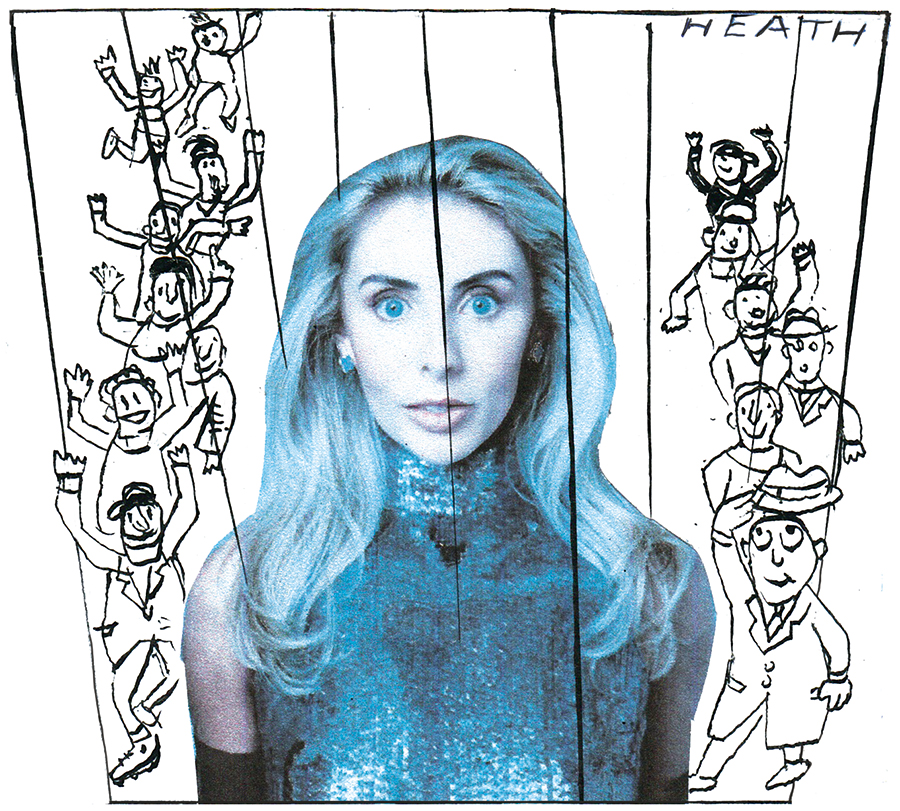It’s become a regular occurrence: a friend or a friend-of-a-friend is visiting London, wants to go to a football game and messages asking for help getting tickets. My standard response is: no chance. The most recent of these was from New Zealand-based Spectator contributor David Cohen, whose son will be in London in the autumn. I’d love to be able to help him but know I almost certainly can’t. The sad reality is that I’m struggling to get tickets myself these days, let alone able to assist others.
The clubs themselves are too greedy to do anything other than continue to wring as much out of the fans as they can
When I first started going to football, to West Ham games in the late eighties, it used to be easy getting in. You just turned up. Matches which were particularly sensitive security-wise were given ‘all ticket’ status, meaning you had to purchase in advance. But few were – and getting these advance tickets was rarely too difficult. Otherwise, you could simply pay cash at the turnstiles and walk in. The day that Arsenal were confirmed as 1990–91 league champions, they beat Man United 3–1. I was able to pay £4 to get onto the north bank at Highbury just five minutes before kick-off – and, unlike young Danny Cohen, I’m not even an Arsenal fan. The crowd that day was 40,229 but the capacity was 42,300: they could have squeezed in another 2,071 people. And this was entirely normal.
If you look at newspaper cuttings from those late eighties days, the crowds at old First Division matches were astonishingly low by contemporary standards: 14,000, 17,000, 21,000. With the advent of the Premier League, that began to change and the numbers steadily increased. So, by the mid-nineties, I’d begun to buy season tickets to ensure we could still get in. But even then, for West Ham at least, it was still possible to renew that season ticket well into August. Now if you haven’t renewed by mid-May, you risk losing out. Because perversely, even after moving into a new ground eight years ago – the former Olympic stadium – which saw the capacity almost double, it’s now harder to get tickets than ever before. The same thing has happened at most other clubs: even enlarged grounds couldn’t keep pace with demand. Arsenal’s Emirates stadium now holds almost 20,000 more people than the old Highbury stadium did that day in 1991, but there’s still a season ticket waiting list estimated in years. And were Arsenal to win the league next season, there’d be at least 40,000 outside the ground never mind in it, such is the demand.
Even smaller clubs are affected: one friend recently told me that my back-up plan of starting to go to Leyton Orient instead won’t work without careful planning: they now sell out almost every League One game too. I foolishly voluntarily gave up our three West Ham season tickets a couple of years back. This was because, at the time, my prawn sandwich era, thanks to a family connection to a sponsor, I was being offered free seats to almost every game. But that supply dried up and, when I tried to repurchase my old season tickets, I discovered that there was now a long waiting list – and they are now charging you £30 just to join it. So recently, I have relied on favours from better-placed friends who can’t go to get to the occasional game. And in the longer term, I wait for West Ham’s bubble to burst, for my team to get relegated again to see a dip in demand which would enable me to get back as a regular. It’s perverse to almost want your team to go down, but that’s what I’m reduced to.
Of course, it’s not just football and other high-interest sports where this has happened. It has also particularly hit live music. There’s more demand for big concerts than ever before, which in turn has fuelled hysteria around ticket sales – and crazy prices particularly demanded for resales. Were I permitted to sell my youngest’s hard-secured Taylor Swift tickets for Wembley, I could get ten times what I paid for them – even thought the £125 face value made me feel queasy at the time. David Hepworth, in his forthcoming book, I Hope I Get Old Before I Die, pinpoints Live Aid as the moment this syndrome started. The huge global TV audience wanted to have been there, and a huge new demand was born for stadium shows, which changed the whole industry. That same summer, 1985, I went to my first Glastonbury. It cost £17. And unlike today’s annual sell-out in five minutes, we had time to send cheques by post with an SAE to get our tickets. But going back to football, I think there’s a much bigger point here than my personal grievances. This is about the long-term wellbeing of the game. The situation we have now is profoundly unhealthy: having occasional attendees disenfranchised like this is just not a very clever long-term marketing strategy.
It’s widely known that if you want to get onto the show courts for the tennis at Wimbledon, you can do so if you are prepared to tough it out in an overnight queue. Why don’t they hold back a few hundred tickets for each football game to afford the same opportunity? Were he able to queue up to get in to see them play this October, Mr Cohen Jr might be inspired to switch from Arsenal to a lifelong, long-distance affiliation with West Ham, Spurs or Chelsea instead (well hopefully not Chelsea, let’s be frank.) But the option isn’t there. Instead, occasional or new fans are reduced to trying to get to the lesser matches where demand is lowest – minor cup games are always full of parents trying to inspire kids, but it can be a hard sell on such low-key occasions.
The clubs themselves are too greedy to do anything other than continue to wring as much out of the fans as they can, in perpetuity, to ever introduce such a scheme. Mark Solomons noted this appalling greed in regard to Spurs and older fans recently here. This summer has seen similar complaints from West Ham fans at what they say are exploitative price rises and restrictions for concessionary season ticket holders. And these are the, to me at least, lucky ones who can get tickets at all. It’s really down to the FA and the Premier League to recognise the problem and force clubs to address it: to make them hold back a proportion of seats to sell on match days. I don’t hold out much hope that they will though. Football is just too full of itself to care.








Comments